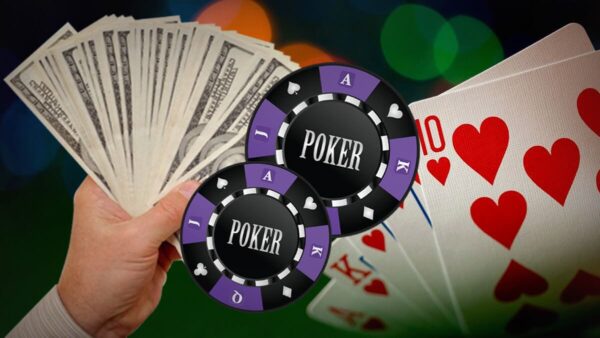Are you ready to take your poker game to the next level and start playing high stakes? Well, if so, there are a few skills you’ll need to master first. This blog post will cover all the essentials that you need to become a successful high-stakes poker player! So, buckle up and get ready for an exciting journey toward poker success!
Developing a Winning Strategy
Developing a winning strategy when playing high-stakes poker is key to your success. There are certain skills you will want to master in order to increase your chances of winning. Knowing how to read the board and understanding your opponent’s motivations and choices are just a few of the important areas you’ll need to focus on.
It is important to understand all of the different aspects of poker, such as game theory and probability, and use them effectively as part of your strategy. Positioning is an immense part of forming a profitable approach at the table – it is a best practice that you enter with an aggressive stance from a late position, or from any position if there are limp calls before you act. Understanding when it makes sense to play for set value versus pure bluffing can also be beneficial; in some cases, it might be better for you to make smaller continuation bets or incomplete bets than go for value on every street. Click here to try out these strategies if you are feeling lucky!
Your mental approach can also help with strategic decision-making; stay calm in tough situations and understand which hands give you the best-expected return versus which ones have greater risk factors involved. In addition, mastering the basic fundamentals such as pot odds, self-control & bankroll management are essential steps toward becoming a successful high-stakes player. Finally, don’t forget that learning from other successful players by observing how they play can give you valuable insights into winning strategies used by them.
Managing Your Bankroll

Managing your bankroll is one of the most important skills to master if you want to play high-stakes poker. Your bankroll is the amount of money you have set aside specifically for poker, and it should be safeguarded as much as possible. Being able to accurately measure how much cash you can commit to a hand without risking ruin will help you make more effective decisions at the table.
It is important to know how much money you can invest in a single game and be prepared to adjust your bankroll in line with any changes that may occur at the table throughout a game. If certain hands cause your stack size (the total money available for play) to drop, then it is wise to readjust your betting amounts so that you can avoid any dangerous losses.
Keeping track of how often you are winning or losing at the tables and adjusting your playing style in line with this can go a long way toward helping you manage your bankroll well enough that even if things don’t go quite as expected, you will still have enough cash on hand for future games. Being able to identify when and why certain hands come up more frequently than others will also aid in understanding when tactical adjustments might be needed.
Developing Your Mental Game

In the game of high-stakes poker, your mental game is just as important as developing a strategy. Players who are successful at high-stakes play have learned to control their emotions in order to make better decisions and hold their focus for longer periods of time.
Developing your mental game starts with understanding the psychology of poker and how it affects decision-making at the table. You will need to learn how to manage stress, recognize emotional triggers, view losses and wins from an objective perspective, and maintain discipline in order to remain psychologically balanced during high-pressure situations. Additionally, you should practice visualization techniques in order to put yourself in control during tumultuous hands or moments in the game.
Along with mastering these psychological aspects, it is helpful to understand the creative plays that pros use when playing higher-stakes games. A strong calculation strategy without emotion can help reduce risk when taking risks on bluffs or semi-bluffs. This includes being aware of pot odds and knowing when push or fold decisions should be considered. Once comfortable with making these advanced moves, it is also wise to develop a contrast between aggressive plays and passive moves so opponents won’t know what you are going to do next.
Staying Focused and Motivated

Winning at high-stakes poker requires a level of focus and discipline that you won’t find in any other sport or activity. You have to stay on top of your game in every aspect; from strategy, mental toughness, and proper bankroll management. It’s not just about playing the cards you are dealt, it’s about making sure that you are always ready to take on whatever comes your way. To be successful, it is essential to stay focused and motivated in order to meet your goals.
Becoming an elite-level player takes dedication and relentless practice. That means making an effort each day for growth, such as reading books and watching videos about the game. But more importantly, it requires putting the time into regularly playing so that you can learn from mistakes and develop an understanding of how different opponents play their cards.
Another important thing that high-stakes players should do is set realistic achievable goals that they can aim for every session or tournament they enter. This will help them stay engaged and motivated even when the going gets tough – something that is absolutely essential if you want to become a successful player over the long run. Also, having small rewards along the way can help keep your motivation levels up as well – whether this is something simple like buying yourself a new piece of poker gear or bragging rights with friends after winning an exciting tournament!
Knowing When to Quit
If you are playing high-stakes poker, it is important that you know when and how to quit. Playing too long can result in large losses, as passive or aggressive players may take advantage of a weakened opponent. You must not only be aware of when to quit the table and how much money you are willing to lose or win, but also know what hands will give you the best chance of succeeding.
It is easy to become emotionally invested in poker, and this can cloud your judgment when making decisions at the table. If your current session isn’t running as well as expected or a few bad hands have been dealt, this is a sign to stop playing while still ahead. By knowing when not to play – even if expecting bigger wins – you are able to manage your bankroll better, preserving your resources for future games and tournaments.




